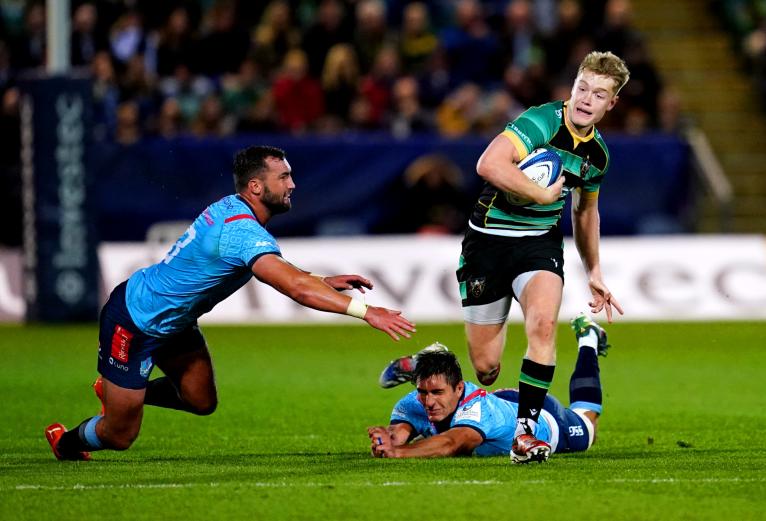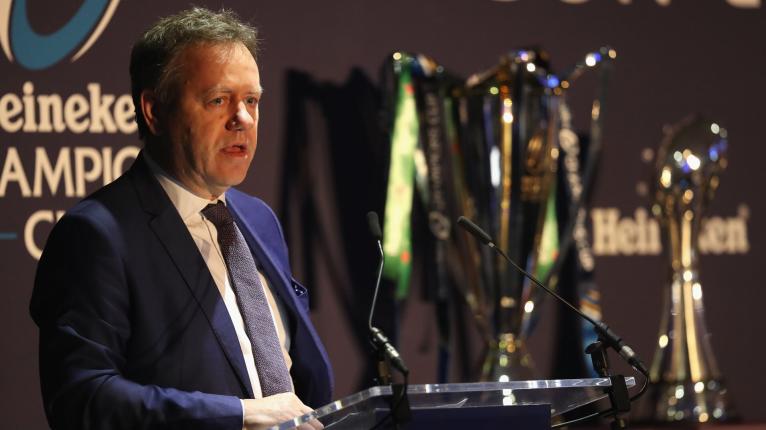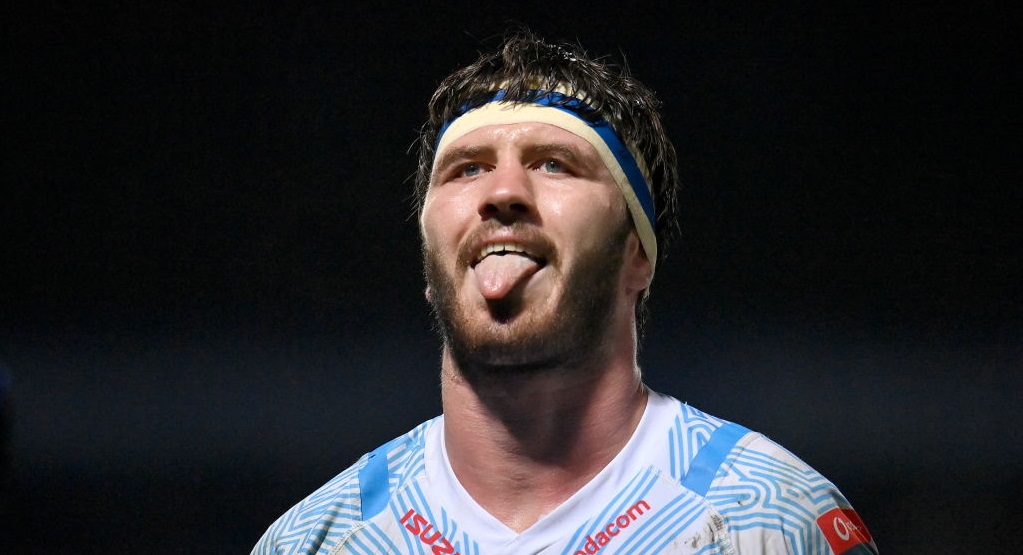Jake White: Let me clear up some things

The flight back to South Africa gave me time to reflect on a pretty intense couple of days, and believe me, I’ve had a few over the years.
Now, there are so many versions of our Northampton sojourn doing the rounds. What I will say is this. It’s early days. We have entered into a competition that other clubs have been playing for nearly three decades. We still have our L-plates on. After the results on the weekend, privately, it was agreed that the knockouts need a week’s break in between round 16 and the last eight. From a logistical point of view, I must applaud that. Decision-makers have seen that it isn’t fair for a team to travel those distances with that tight turnaround. Indeed, perhaps those scorelines needed to happen for people to understand the schedule’s imperfections.
I saw Ronan O’Gara was very humble and measured with his post-match comments after the Leinster game, but I ask you, how does a two-time winner go from being the best team in the tournament to losing 40-13 and not scoring a point in the second-half in Dublin? Can you go from majestic to mediocre in that space of time? No, it’s got to do with traipsing to Cape Town and back again. It comes at a cost.
Contrary to popular opinion, not for a second was I trying to undermine the competition’s integrity. I want to make that clear. I didn’t put all that work in in the Pool stages just to throw it away. In my 31 years of coaching, I have never entered a competition I haven’t wanted to win.
I understand there was a lot of talk about us fielding a Bulls B-team. I get it. I understand people want to see the best players play all the time. In principle I agree with that, however, if you want to see the best players all the time, something in the game’s calendar has to give.
I should also explain that EPCR ask you to register 55 players at the start of the season, so why is it a sin to use the squad you’ve registered? Will there be a new caveat saying you can’t use your wider squad in a play-off game? As the season’s crowded schedule unfolded, I thought that was the game I could use some fresh faces, to give it a crack.
We have a lot of plates to spin in South Africa. We play in the Currie Cup and as part of the SA Rugby’s participation agreement, I’m not sure everyone appreciates that all our players need eight consecutive weeks off. If you’re involved in the URC, Champions Cup and Currie Cup, with injuries, budgetary constraints and other curveballs, you have to make decisions that aren’t always popular.

It made me think about how professional rugby is stuck in Groundhog Day. The more you move forward, the more you have to look back. Rewind to 1995 and the birth of the game as a professional entity. When the deal to start Super Rugby was being thrashed out, it’s been well-documented that Rupert Murdoch would only sign the broadcast deal if he had the keys to the kingdom. So Francois Pienaar was going to get the signatures of the Springboks, Sean Fitzpatrick was going to get the signatures of the All Blacks and Phil Kearns the names of the Wallabies. It was the equivalent of the Kerry Packer breakaway tournament in cricket, and Murdoch’s Sky Sports eventually supercharged the move from amateur to professional.
It reminds me of what the French philosopher Jean-Baptiste Alphonse Karr wrote, “plus ça change, plus c’est la même chose”. Essentially, ‘the more things change, the more they stay the same’. The reason those signatures were needed was financial. If the money men were going to put serious cash into the competition, if the sponsors were going to get on board and if the broadcasting rights were going to come in from all corners of the world, he had to have all the best talent available. Not half of it. Not teams missing. Sky wanted it all. Look at what LIV Golf is doing in golf right now. There are no half-measures when you want to dominate a sport. The modus operandi in elite sport has always been the same – secure the best players.
Currently, the dispersal of talent is fragmented. Are the best players in the world playing in the same competition? Of course not. I know South African sponsors are putting money into the Sharks, the Stormers, Bulls and Lions, but are they getting a reasonable return on investment? Not really, because you have a long list of Springboks playing their rugby outside the Rainbow Nation.
I read an interview with Simon Halliday this week, the former head of the EPCR. Wearing his England cap, he said England players should be picked even if they’re playing abroad because he wants the national team to be competitive and win a World Cup.

My response to that is, if the 12-11 semi-final result had gone the other way – and that goes for the other two one-point games against France and New Zealand – would we be holding the South African model up as best in class? Something everyone wants to mimic and copy.
It’s doubtful.
People have to appreciate that what works in England is different to what works in South Africa. Lots of English commentators are asking for more flexibility over player selection, especially as you can be in Paris in only two hours on the train, which is closer than Pretoria (Bulls) to Cape Town (Stormers) on the plane. Feasibly English boys in Paris, Toulouse, Toulon or Bordeaux could make it back in a day. Of course, would those same commentators be advocating for picking overseas players if they went to play in New Zealand, Australia and Japan? The answer would be no. It wouldn’t even be considered.
In France, it’s basically an open secret that Fijian, Samoan, Georgian and Tongan players are under pressure from their club owners to pass on mid-year or end-of-year tours because they’re needed by their clubs. If they up sticks, they can risk losing their contracts that provide a generous lifeline to family back home.
I remember after the 2007 World Cup there was a meeting by the powers-that-be about how you fitted Argentina into the global Test calendar because they’d finished third in the tournament. Space was found for them in the Rugby Championship but what I remember vividly is a spokesperson for the Top 14 saying, ‘Look, out of the 31-man Argentina squad, we have 30 playing in our league, out of the 31-man Georgia squad, we have 29 players playing in the Top 14 and ProD2’. And so he went on. His argument was that the Ligue Nationale de Rugby does more for the development of those players than any governing body does. The gist was, if you’re going to coral them into playing Test rugby, then theoretically we’re not going to contract them because we’re not getting our return on our investment. Whether we like it or not, rugby has gone professional and there is no turning back.
If you knit those arguments together, it goes back to what I’m saying about the best players playing in the best competition. I’ve said this ad nauseam, but will say it again. South African franchises would be powerhouses if we had all our overseas based players back in situ. We would have the same unbeatable aura the Toulouses, Leinsters or Saracens of this world have had over the last decade or so. Right now, the talent Leinster are assembling is frightening. Signing Jordie Barrett on top of RG Snyman, hell, I’ve even seen rumours they’re in for Taniela Tupou – the move to the Aviva Stadium could see them sitting regally at the top of Europe for some time.
This is my next debate. After the press release about the World Club Championship, the next looming battle between Test and club rugby beckons. My message would be, please be careful not to kill the goose that lays the golden egg. In South Africa, it’s the franchises and the personnel who cultivate the stars and the local businesses who support them. It’s the same in England, if all your best players go to France why would Gallagher continue to sponsor the league, why would TNT continue to pay for TV rights? No, they wouldn’t. They want the best players playing in front of their audiences and to put bums on seats so there are full stadiums. If the day comes when local sponsors decide to overlook the team down the street, and invest in franchises thousands of miles away is the day I really worry about the game I love.
Loyalty plays a part here. The happiest day of my life were when I was appointed national coach of my country. As a non-Springbok, English-speaking guy, it was the pinnacle of my career. I would have given anything for that privilege and looking back, I’ve never had that feeling again, so I know how much it meant to me. When you listen to those emotive sporting quotes that say, ‘I would give anything to play for my country’, or ‘sacrifice needs to hurt’, then theoretically it means committing yourself to your own country. You can’t make millions overseas and then drop in for the weekend to play for your country. You need to give more. That’s my viewpoint.
Otherwise, I’ll tell you what’s going to happen further down the line. Rugby will go the same way as cricket. Test cricket is in its death-knell and IPL (Indian Premier League) will be deemed to be the future. Marketers can give me all the gimmicks they want about fans want to follow 50 or even 20 overs, and that five days Test cricket is passé, but it’s nonsense. Cricket created that monster and rugby will go the same way if we’re not careful. People say, that will never happen to the leading nations, but why can’t it? If a club on the other side of the world pays you the big bucks, then one day Test rugby is going to be diminished irrevocably – it’s already happening.
I’d love to hear your thoughts.












































































“South African franchises would be powerhouses if we had all our overseas based players back in situ. We would have the same unbeatable aura the Toulouses, Leinsters or Saracens of this world have had over the last decade or so.”
Proof that Jake white does not understand the economics of the game in SA.
Players earning abroad are not going to simply come back and represent the bulls. But they might if they have a springbok contract.
The greatest Springbok coach of all time is entirely on the money.
Rassie and Jacques have given the south african public a great few years, but the success of the springbok selection policy will need to be judged in light of what comes next. The poor condition that the provincial system is currently in doesn’t bode well for the next few years of international rugby, and the insane 2026 schedule that the Boks have lined up could also really harm both provincial and international consistency.
Jake White is a brilliant coach and a master in the press. This is another masterclass in media relations and PR but its also a very narrow view with arguments that dont always hold water. White wants his team to win, he wants the best players in SA and wants his team competitive. You however have to face up to the reality of a poor exchange rate and big clubs with big budgets. SA Rugby cant compete and unless it can find more money SA players will keep leaving regardless of Springbok eligibility and this happened in 2015 - 2017. Also rugby is not cricket. Cricket has 3 formats and T20 cricket is where the money is at. When it comes to club vs country the IPL is king but that wont happen because the international calendar does not clash with the club calendar in rugby. So the argument about rugby going down the same path as cricket is really a non-starter
Jake White talks more sense than anything I've read in the last 5 years. Hope someone's listening.
The Springboks tried going down the road of only picking home-based players and it was an unmitigated disaster in 2016 and 2017. Picking overseas-based players has been one of the main reason the Boks have done so well since 2018, not only because of the quality Rassie could call on, but because of the knowledge and experience those players brought into camp from England, France and Japan. With some of the big names playing abroad it also gave younger players in SA the chance to break through at franchise level. Would we have seen the emergence of a Ruan Nortje if RG and Lood were still at the Bulls? Not so sure. I understand why Jake would want to block players leaving since his job depends on good results but it’s an approach that would take Bok rugby back to the bad old days and no South African wants to see that.
I remember towards the end of the original broadcasting deal for Super rugby with Newscorp that there was talk about the competition expanding to improve negotiations for more money - more content, more cash.
Professional rugby was still in its infancy then and I held an opposing view that if Super rugby was a truly valuable competition then it should attract more broadcasters to bid for the rights, thereby increasing the value without needing to add more teams and games.
Unfortunately since the game turned professional, the tension between club, talent and country has only grown further.
I would argue we’re already at a point in time where the present is the future. The only international competitions that matter are 6N, RC and RWC. The inter-hemisphere tours are only developmental for those competitions.
The games that increasingly matter more to fans, sponsors and broadcasters are between the clubs. Particularly for European fans, there are multiple competitions to follow your teams fortunes every week.
SA is not Europe but competes in a single continental competition, so the travel component will always be an impediment. It was worse in the bloated days of Super rugby when teams traversed between four continents - Africa, America, Asia and Australia.
The percentage of players who represent their country is less than 5% of the professional player base, so the sense of sacrifice isn’t as strong a motivation for the rest who are more focused on playing professional rugby and earning as much from their body as they can.
Rugby like cricket created the conundrum it’s constantly fighting a losing battle with.
A very insightful article from Jake. I would love to know how South African’s feel about their move to Europe. Do you prefer playing in Europe or want to go back to Super Rugby?
A very well thought out summary of all the relevant complications…agree with your ”refer the Cricket Test versus 20/20 comparison”. More also definitely doesn't necessarily mean better!